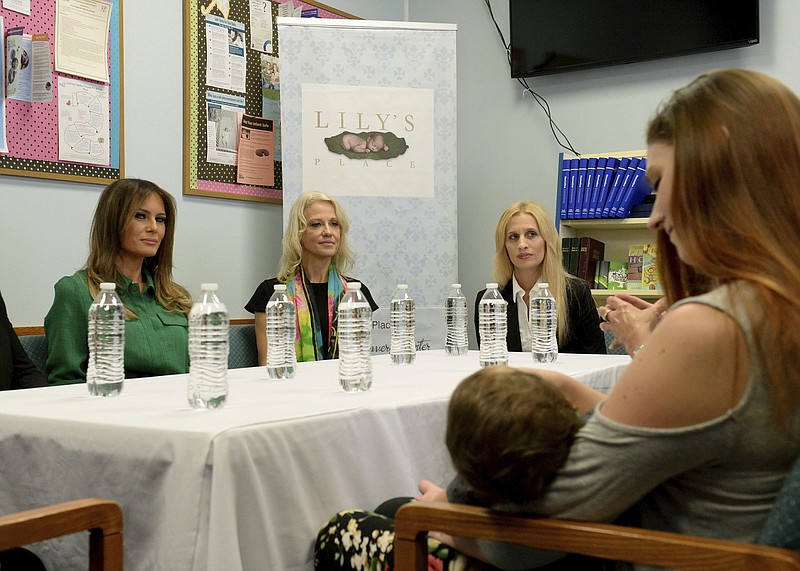CHARLESTON, W.Va. (AP) - West Virginia, which has the nation's highest rate of babies born dependent on drugs, will now offer Medicaid coverage to treat those babies.
The U.S. Centers for Medicare and Medicaid Services has approved treatment services in the state for newborns enduring the torment of drug withdrawal, the state Department of Health and Human Resources said in a news release Tuesday.
The statement said West Virginia becomes the first state to receive such approval. Cindy Beane, commissioner of the DHHR's Bureau for Medical Services, said it will allow the treatment of the opioid crisis' "most vulnerable, innocent victims."
In October, first lady Melania Trump visited Lily's Place, a drug recovery center for infants in Huntington. During the visit, Lily's Place Executive Director Rebecca Crowder lamented the challenge of getting funding and insurance coverage to treat the infants.
The first of its kind in the nation, the 12-room, nonprofit facility was opened in 2014 by a group of volunteers and health care workers. Its website says the facility provides care for about 100 infants each year.
"This issue has been a source of uncertainty for Lily's Place, so we welcome this announcement," Crowder said in a statement issued through the office of Republican U.S. Rep. Evan Jenkins, of West Virginia. "This designation will allow us to continue to offer compassionate care to newborns in need."
The Centers for Disease Control and Prevention said the rate of babies born dependent on drugs in West Virginia was 33.4 per 1,000 hospital births in 2013, the latest year available, compared with the national average of 5.8. West Virginia also had by far the highest rate of drug overdose deaths in 2016 at 52 per 100,000 residents, up from 41.5 in 2015.
According to the CDC, signs of drug withdrawal in babies include fevers, tremors, seizures, excessive crying, poor weight gain and dehydration.
Crowder said the hope is to enable more infant drug rehab centers to open nationwide. A bill introduced in Congress last year is aimed at helping such facilities overcome regulatory hurdles and receive Medicaid-service reimbursement.

